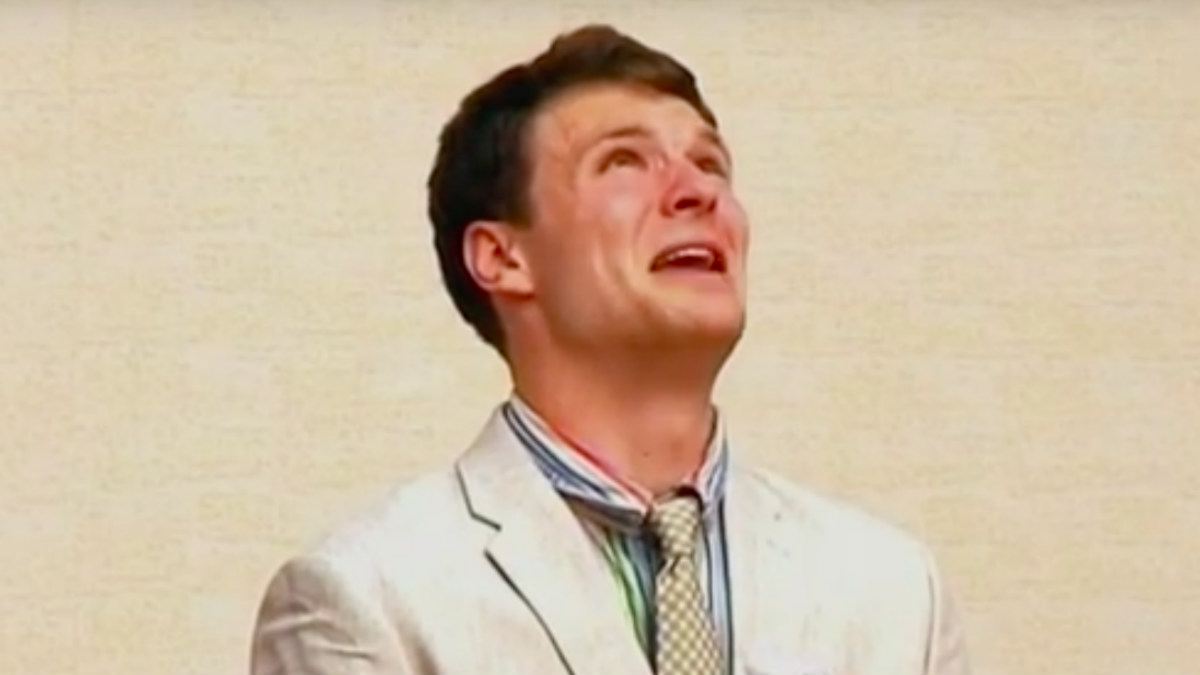US student Otto Warmbier freed by North Korea has 'severe brain injury'
US doctors say former detainee's condition shows signs he suffered a respiratory arrest while being held in Pyongyang

A free daily email with the biggest news stories of the day – and the best features from TheWeek.com
You are now subscribed
Your newsletter sign-up was successful
Otto Warmbier, the US college student freed by North Korea this week, has a "severe brain injury", according to his doctors.
The announcement casts doubt on Pyongyang's claim that Warmbier fell into a coma as a result of contracting botulism and being given a sleeping pill.
Speaking a news conference, Warmbier's father said North Korea had "brutalised and terrorised" the student and accused it of making false promises that tourists would not be detained.
The Week
Escape your echo chamber. Get the facts behind the news, plus analysis from multiple perspectives.

Sign up for The Week's Free Newsletters
From our morning news briefing to a weekly Good News Newsletter, get the best of The Week delivered directly to your inbox.
From our morning news briefing to a weekly Good News Newsletter, get the best of The Week delivered directly to your inbox.
"There's no excuse for the way the North Koreans treated our son," he added.
However, the BBC reports that scans performed at the Cincinnati Medical Center show "no sign that he was physically abused during his detention".
Warmbier is awake, but has not spoken and appears to be unaware of his surroundings, a doctor said. Medics at the hospital believe his condition is the result of respiratory arrest, which is caused by a lack of oxygen and blood in the brain.
His neurological condition was "not what we normally see with traumatic brain injury", said Dr Daniel Kanter. "It's the type we see with cardiopulmonary arrest."
A free daily email with the biggest news stories of the day – and the best features from TheWeek.com
"Otto Warmbier's condition, its possible causes and his treatment while he was detained in North Korea are of intense interest in a case that threatens to worsen already fraught relations between the United States and North Korea," the Washington Post says.
North Korea releases US student Otto Warmbier
14 June
US student Otto Warmbier has been freed from jail in North Korea, 13 months after being sentenced to 15 years of hard labour.
"Our son is coming home," his father Fred told the Washington Post last night. "At the moment, we're just treating this like he's been in an accident. We get to see our son Otto tonight."
According to the Post, the 22-year-old University of Virginia student has been in a coma since being convicted in a one-hour trial in Pyongyang in March 2016, accused of stealing a propaganda banner from a hotel.
It is believed he contracted botulism while being detained at a high-security prison in the reclusive country.
Warmbier was detained at Pyongyang airport while on his way home to the US in January 2016. According to his parents, he had been touring the country.
However, North Korean authorities said they had security footage from the Pyongyang hotel where Warmbier was staying showing him trying to steal a banner containing a political slogan that was hanging on a wall.
US Senator Rob Portman, who represents Warmbier's home state of Ohio, said the detainment and sentence were "unnecessary and appalling"., and North Korea should be universally condemned for its abhorrent
He, added: "North Korea should be universally condemned for its abhorrent behaviour. Otto should have been released from the start."
Three other Americans remain in North Korean jails. Shortly after Warmbier's sentencing, Kim Dong-chul, was arrested on accusations of espionage, and has been held ever since.
Kim Dong-chul was arrested on accusations of espionage shortly after Warmbier's sentencing and has been held ever since.
Two other Korean-Americans, both of them affiliated with the Pyongyang University of Science and Technology, a private institution run by Korean-American Christians, were detained this spring.
-
 Local elections 2026: where are they and who is expected to win?
Local elections 2026: where are they and who is expected to win?The Explainer Labour is braced for heavy losses and U-turn on postponing some council elections hasn’t helped the party’s prospects
-
 6 of the world’s most accessible destinations
6 of the world’s most accessible destinationsThe Week Recommends Experience all of Berlin, Singapore and Sydney
-
 How the FCC’s ‘equal time’ rule works
How the FCC’s ‘equal time’ rule worksIn the Spotlight The law is at the heart of the Colbert-CBS conflict
-
 Epstein files topple law CEO, roil UK government
Epstein files topple law CEO, roil UK governmentSpeed Read Peter Mandelson, Britain’s former ambassador to the US, is caught up in the scandal
-
 Iran and US prepare to meet after skirmishes
Iran and US prepare to meet after skirmishesSpeed Read The incident comes amid heightened tensions in the Middle East
-
 Israel retrieves final hostage’s body from Gaza
Israel retrieves final hostage’s body from GazaSpeed Read The 24-year-old police officer was killed during the initial Hamas attack
-
 China’s Xi targets top general in growing purge
China’s Xi targets top general in growing purgeSpeed Read Zhang Youxia is being investigated over ‘grave violations’ of the law
-
 Panama and Canada are negotiating over a crucial copper mine
Panama and Canada are negotiating over a crucial copper mineIn the Spotlight Panama is set to make a final decision on the mine this summer
-
 Why Greenland’s natural resources are nearly impossible to mine
Why Greenland’s natural resources are nearly impossible to mineThe Explainer The country’s natural landscape makes the task extremely difficult
-
 Iran cuts internet as protests escalate
Iran cuts internet as protests escalateSpeed Reada Government buildings across the country have been set on fire
-
 US nabs ‘shadow’ tanker claimed by Russia
US nabs ‘shadow’ tanker claimed by RussiaSpeed Read The ship was one of two vessels seized by the US military